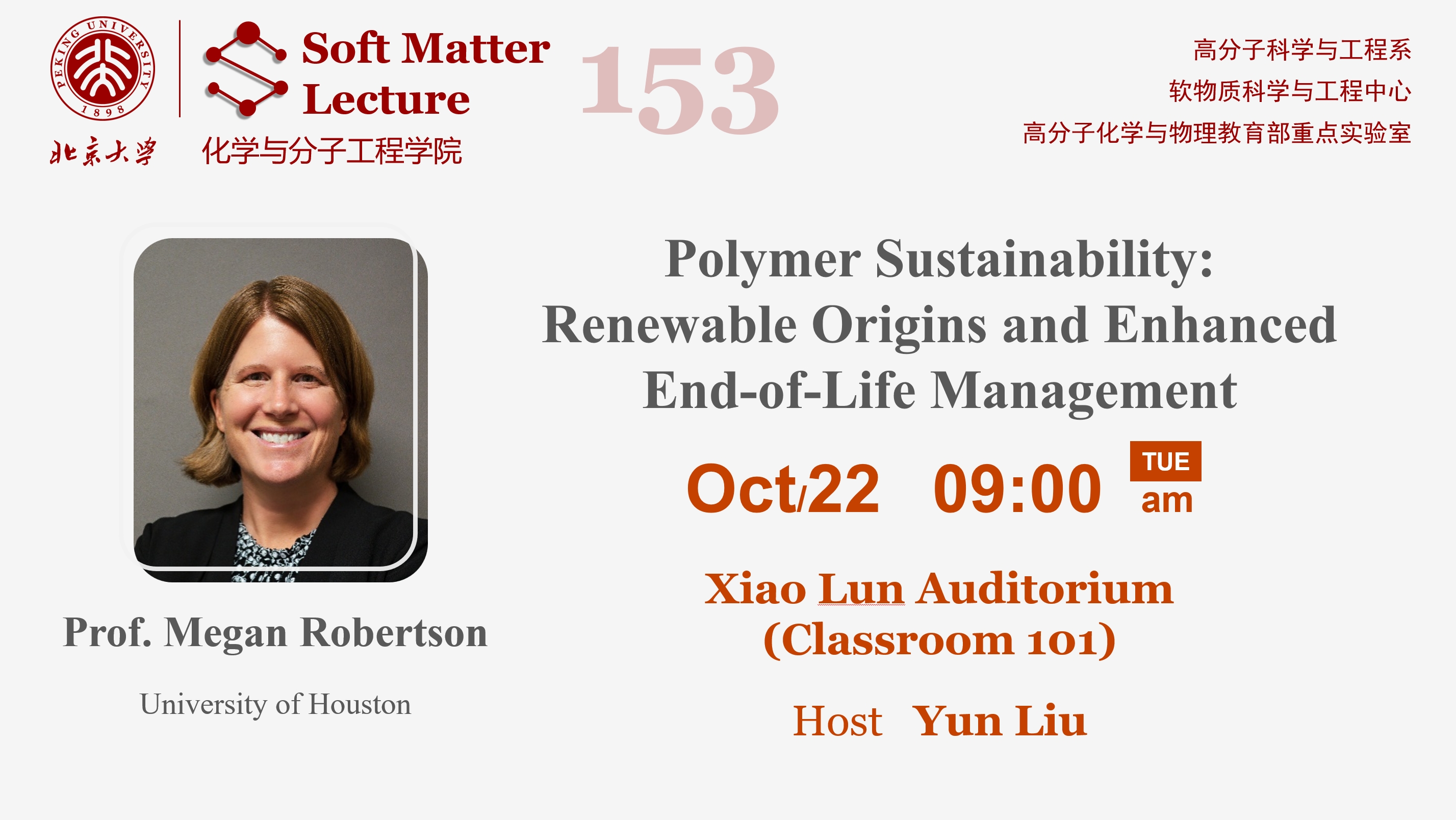
Abstract
Polymers are ubiquitous in society and their use greatly enhances our quality of life, for example in food preservation, medicine, and light weighting of vehicles. A great challenge to overcome is to devise ways to retain our access to these important materials, while avoiding negative environmental impacts. Though there are many facets to the design of truly sustainable materials, including the raw material source, energy demands of processing, and fate of the material post-consumer use, utilization of a more eco-friendly raw material source is an important first step. Ultimately, the full life cycle of the materials must be evaluated, including end-of-life options such as recycling, composting, and disposal in landfills. Of particular interest to our research group is the design of polymers from sustainable, biobased sources with well-defined molecular characteristics and competitive properties to conventional, petroleum-derived materials. We are developing a diverse array of polymers derived from plant sources spanning many classes of materials, such as thermoplastics, thermoplastic elastomers, and elastomers. The raw material sources that we have employed are vegetable oils (such as soybean and castor oils), plant sugars, biobased phenolic acids (found in fruits and vegetables), rosin acids (found in conifers), and lignin (the structural component of plants). Additionally, we are exploring enhanced recycling, upcycling, and degradation processes for polymers to assist in management of end-of-life plastic waste. In particular, we are focused on polyolefins, which represent the largest contribution to plastic production, use, and generated waste worldwide (around 50% of plastics produced globally). More efficient methods of recycling polyolefins have been underexplored, due to significant technological, scientific and economic challenges. Current recycling is limited by the inherent cost in and supply chain logistics of collecting, sorting and cleaning diverse plastic composition waste streams, the presence of additives, fillers and inks, and the downgrading of polymer properties during mechanical recycling. The lack of control over polymer architecture and molecular weight invariably results in recycled materials with inferior properties.